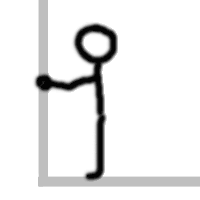E τι να κάνουμε ρε Χρηστάκη; Η αποποινικοποίηση χασίς αφορά και τη νομιμοποίηση διακίνησης και πώλησης της. Δεν είναι μόνο το να τρως ποινή αν πιαστείς με ένα τσιγαριλίκι. Κανείς δεν έχει πει “να πηγαίνει φυλακή όποιος είναι χασικλής”. Μιλάμε για το αν θα επιτραπεί και η πώληση της όπως γίνεται σε χώρες όπως η Ολλανδία. Ελπίζω πάντως, να μη φτάνεις τόσο συχνά σε κατάσταση που να χρειάζεσαι κι ένα μπάφο για να χαλαρώσεις. Εκτός του ότι υπάρχουν κι άλλοι τρόποι για να χαλαρώσεις (μύθος τα περί τύφλωσης :p), αυξάνεις και πολλούς κινδύνους με το μπάφο 
Παρεπιμπτόντως, ας δούμε και την περίπτωση της Ολλανδίας:
Netherlands has a high anti-drug related public expenditure, the second highest drug related public expenditure per capita of all countries in EU (after Sweden). 75% is law enforcement expenditures including police, army, law courts, prisons, customs and finance guards. 25% is health and social care expenditures including treatment, harm reduction, health research and educational including prevention and social affairs interventions.
…
The average concentration of THC in the cannabis sold in coffeeshops has increased from 9% 1998 to 18% in 2005.[5] One of the reasons is plant breeding and use of greenhouse technology for illegal growing of cannabis in Netherlands.
…
In the Netherlands 9.7% of young adults (aged 15?24) consume soft drugs once a month, comparable to the level in Italy (10.9%) and Germany (9.9%) and less than in the UK (15.8%) and Spain (16.4%),[17] but much higher than in, for example, Sweden (3%), Finland or Greece.[3] Dutch rates of drug use are lower than U.S. rates in every category.[18] The monthly prevalence of drugs other than cannabis among young people (15-24) was 4% in 2004, that was above the average (3%) of 15 compared countries in EU. However, seemingly few transcend to becoming problem drug users (0.3%), well below the average (0.52%) of the same compared countries.[3]
…
Criminal investigations into more serious forms of organized crime mainly involve drugs (72%). Most of these are investigations of hard drug crime (specifically cocaine and synthetic drugs) although the number of soft drug cases is rising and currently accounts for 69% of criminal investigations.
…
By 2009, 27 coffee shops selling cannabis in Rotterdam, all within 200 meters from schools, must close down. This is nearly half of the coffee shops that currently operate within its municipality. This is due to a new policy of city mayor Ivo Opstelten and the town council.[21] The higher levels of the active ingredient in cannabis in Netherlands create a growing opposition against the traditional Dutch view of cannabis as a relatively innocent soft drug,[22]. Supporters of coffee shops state that such claims are often exaggerated and ignore the fact that higher thc content means a user needs to use less of the plant to get desired effects…making it in fact safer.[23] Dutch research has however shown that an increase of THC content also increase the occurrence of impaired psychomotor skills, particularly among younger or inexperienced cannabis smokers, who do not adapt their smoking-style to the higher THC content.[24] Closing of coffeeshops is not unique for Rotterdam. Many other towns have done the same in the last 10 years.
The two towns Roosendaal and Bergen op Zoom have in October 2008 announced that they start closing all coffee shops, each week visited by up to 25000 French and Belgian drug tourists, closures beginning in February 2009.
Επίσης, η νόμιμη ποσότητα αγοράς χασίς πήγε από τα 50 γραμμάρια στα …5 και τα coffee shops άρχισαν ήδη να κλείνουν. Κι όλα αυτά ενώ έχουν χειρότερα ποσοστά από εμάς σε χρήστες ελαφριών ναρκωτικών (και χασίς μέσα) και ξοδεύουν πολλά παραπάνω από εμάς.
Σε τι ακριβώς θα έπρεπε να τους ζηλέψουμε; Στο ότι έχουν πλέον δυνατότερες ποικιλίες χασίς από εμάς;




